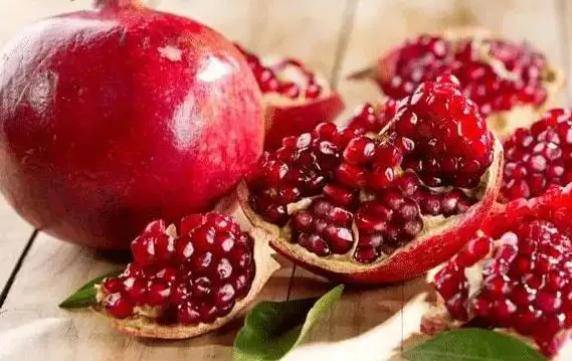Pomegranate is known as the “golden fruit” for autumn health care. This is because pomegranate is a food that shares the same origin as medicine, has high medicinal value, tastes sweet and sour, and is rich in various nutrients.
Pomegranate is nutritionally rich, containing many natural substances beneficial to the human body. Eating pomegranate can not only supplement nutrients but also promote good health. However, not everyone is suitable for consuming pomegranate. So, who should avoid eating pomegranate? Let’s find out.
Nutritional value of pomegranate?
Pomegranate is rich in vitamin C and B vitamins, organic acids, sugars, proteins, fats, as well as minerals such as calcium, phosphorus, and potassium. It can replenish the body with essential trace elements and nutrients, boosting immunity. Pomegranate is rich in various acids, especially organic acids and folic acid, which have health benefits for the body. Folic acid can promote absorption and help improve anemia.
Pomegranate fruit is nutritionally rich. Both the fruit and leaves are valuable. Pomegranate seeds aid digestion and regular consumption improves digestive function.
Is pomegranate a high-sugar fruit?
Pomegranate contains sugar levels ranging from 12%-17%, with about 70 calories per 100g of edible flesh, making it a moderately sugary fruit. Moderate consumption by healthy individuals generally does not lead to obesity. It can also serve as a healthy sweet treat for obese individuals, providing energy and aiding weight loss.
Autumn is the perfect time to eat pomegranate, bringing four health benefits to the body!
1. Beauty and Anti-aging
Pomegranate is abundant in vitamin C and E, enhancing skin antioxidative abilities for whitening effects and anti-aging benefits.
2. Boosting Immunity
Rich in vitamin C, pomegranate helps enhance immunity, promote wound healing, and aid iron absorption.
3. Cardiovascular Care
Moderate pomegranate consumption can benefit heart health by supporting blood circulation through maintaining cardiovascular health.
4. Fetal Health
Pomegranate is beneficial for expectant mothers as it contains polyphenols that help regulate emotions, aiding in preventing miscarriages.
“Warning: Do not consume pomegranate if you belong to these 5 categories,” advises doctors. Here’s why:
1. Individuals with excess stomach acid
2. Individuals with allergic tendencies
3. Individuals suffering from a cold
4. Patients with chronic gastritis
5. Diabetic patients
Additionally, when selecting pomegranates, consider their shape—rounded fruits may have less flesh compared to those with slightly angular shapes. Excessive consumption may lead to symptoms like diarrhea and abdominal pain, therefore, it is advised to consume pomegranate in moderation, typically around 1-2 fruits per day.
Lastly, avoid consuming pomegranate simultaneously with certain medications and remember to rinse your mouth after consumption due to its acidic nature that may harm dental hygiene. Follow these guidelines to enjoy the health benefits of pomegranate to the fullest.


